For those considering acne treatment, our ‘At A Glance’ table provides a succinct overview of what you can expect. This quick reference guide offers crucial details about the acne treatment process at Star Aesthetic Medical Centre, from the duration to the recovery, to help you gain a straightforward understanding of the key elements of acne therapy in an easy-to-read format. If you’re exploring treatment options or looking for concise answers, this table is your resource for an immediate yet detailed insight into the journey of acne treatment.
Acne and Acne Treatment
Welcome to Our Comprehensive Guide on Acne and Acne Treatment
Embark on a journey to understanding and conquering acne with our in-depth guide.
Acne, a common yet complex skin condition, affects individuals of all ages and backgrounds, often leading to physical discomfort and emotional distress.
Here at Star Aesthetic Clinic, we believe in empowering you with knowledge and effective solutions.
Our Acne and Acne Treatment Page is designed to provide you with a thorough understanding of what acne is, its causes, and the most effective treatment options available.
From the ancient history of acne treatments to the latest advancements in dermatological care, this page serves as your ultimate resource.
Whether you’re looking to educate yourself about acne or seeking advanced treatment options, our expertly curated content is here to guide you every step of the way.
Join us in exploring the path to clearer, healthier skin and the confidence that comes with it.
The History of Acne
Acne extends far back into human history
The history of acne is indeed fascinating and extends far back into human history. It’s not a modern-day problem but rather a condition that has affected people for thousands of years.
1. Ancient References and Early Documentations:
- Acne has been a known skin condition since at least the time of Ancient Egypt. Mummies have been found with evidence of acne, and some of the earliest treatments for acne are found in ancient Egyptian documents.
- In ancient Rome, the physician Aulus Cornelius Celsus described acne in his medical treatise “De Medicina.” He recommended treatments like sulfur baths and the use of retinoids, which are still used in acne treatment today.
2. Biblical Times and Ancient Civilizations:
- While there are no direct references to acne in the Bible, skin diseases in general are mentioned. It’s possible that what was sometimes described as boils or skin eruptions could have included severe cases of acne.
- The Greeks and Romans also discussed skin conditions resembling acne. The word “acne” itself is derived from the Greek word “aknē.”
3. Medieval Period and Renaissance:
- During the Middle Ages, acne was often attributed to an imbalance of the four humors (blood, phlegm, black bile, and yellow bile), a theory prevalent in medieval medicine.
- In the Renaissance, physicians and scholars began to understand skin anatomy better, but effective treatments for acne were still rudimentary and based on humorism.
4. Modern Understanding and Treatments:
- The scientific understanding of acne and its treatment only began to advance significantly in the 20th century.
- Diet, hygiene, and other factors were explored as potential causes, leading to the development of more effective treatments.
5. Famous Historical Figures with Acne:
- While specific details are sparse, several historical figures are believed to have suffered from acne. For instance, it is speculated that Queen Elizabeth I of England, who was known for her heavy makeup, may have used it to cover acne scars.
- Other famous figures throughout history, whose portraits or descriptions suggest they might have had acne, include Napoleon Bonaparte and Shakespeare.
6. Is Acne a Modern Problem?
- Acne is not exclusively a modern problem, though factors like diet, pollution, and stress, which can exacerbate acne, are more prominent in contemporary lifestyles.
- Genetic predisposition to acne has likely always been a factor throughout human history.
While we can’t pinpoint the exact first mention or identify every historical figure with acne, it’s clear that this condition has been a part of human health for centuries.
Modern dermatology continues to build on a foundation of thousands of years of observation, study, and treatment of acne.
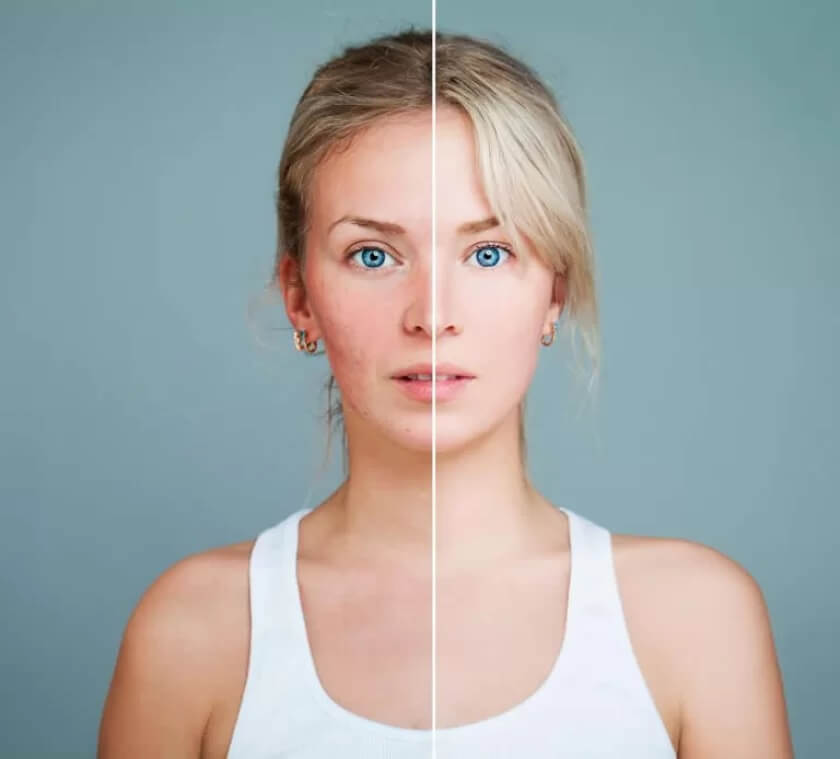
What is Acne and Acne Scarring?
Acne, medically known as Acne Vulgaris, is a common skin condition that typically begins in adolescence. It develops when hair follicles become clogged with oil (sebum) and dead skin cells, leading to the formation of whiteheads, blackheads, and pimples. While it most frequently affects the face, forehead, chest, upper back, and shoulders due to the high density of oil glands in these areas, acne can occur on any part of the body with oil-secreting glands or hair follicles.
The condition is influenced by various factors, including hormonal changes, diet, stress levels, and genetics. It can range from mild to severe and may cause emotional distress and skin scarring if not properly managed.
What does the process of acne treatment entail 1?
The process of acne treatment generally involves several key steps tailored to the individual’s specific type of acne and its severity. Here’s a general outline of what this process may entail:
Assessment: A dermatologist will first assess the type of acne (comedonal, inflammatory, cystic, etc.), its severity, and potential contributing factors, such as hormonal imbalances, lifestyle, and skincare routines.
Treatment Plan: Based on the assessment, the dermatologist will create a personalized treatment plan. This plan may include:
-
Topical Treatments: These can include over-the-counter gels, creams, and lotions that contain acne-fighting ingredients like benzoyl peroxide, salicylic acid, and retinoids to help unclog pores and reduce inflammation.
-
Oral Medications: For moderate to severe acne or acne not responsive to topical treatments alone, oral medications such as antibiotics, birth control pills (for hormonal acne), or isotretinoin (for severe nodular or cystic acne) may be prescribed.
-
Therapeutic Procedures: In-office procedures like chemical peels, laser therapy, or photodynamic therapy may be recommended to reduce bacteria, improve skin texture, and reduce the appearance of scars.
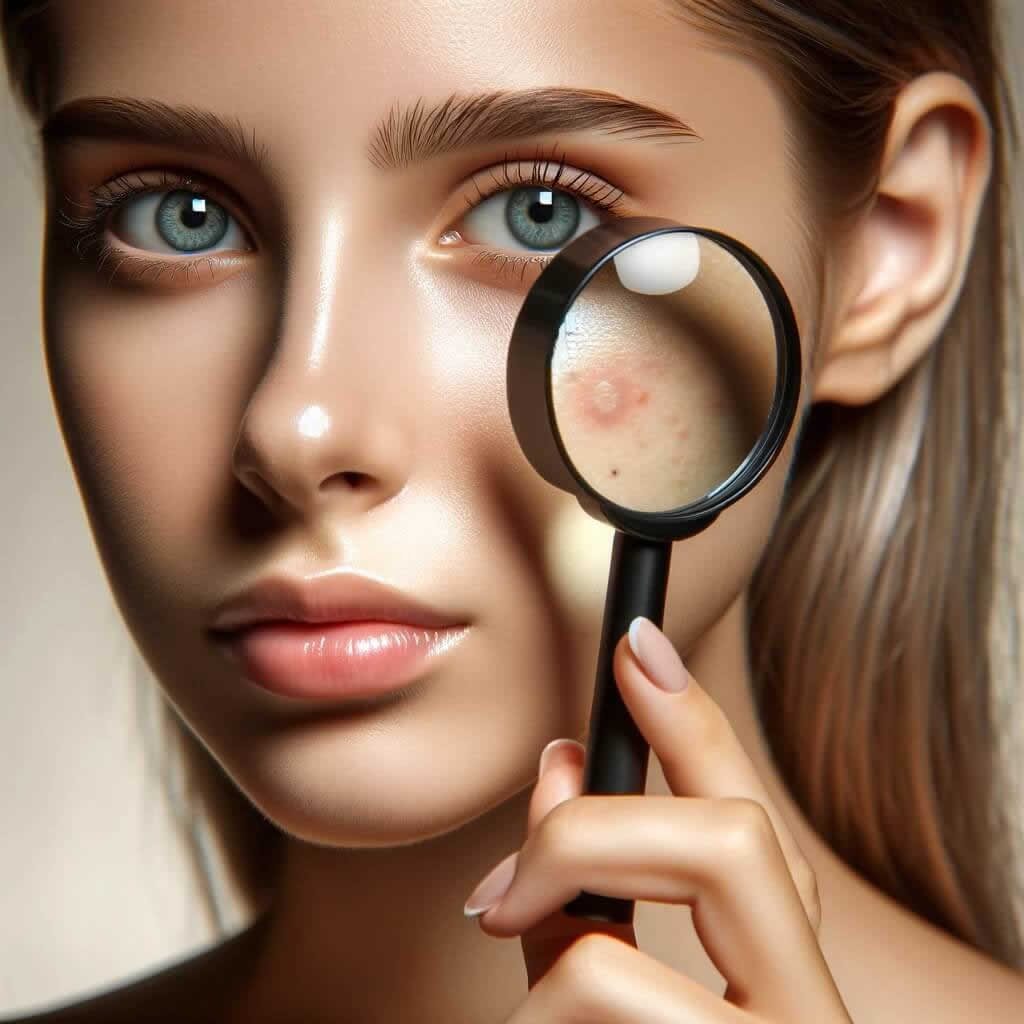
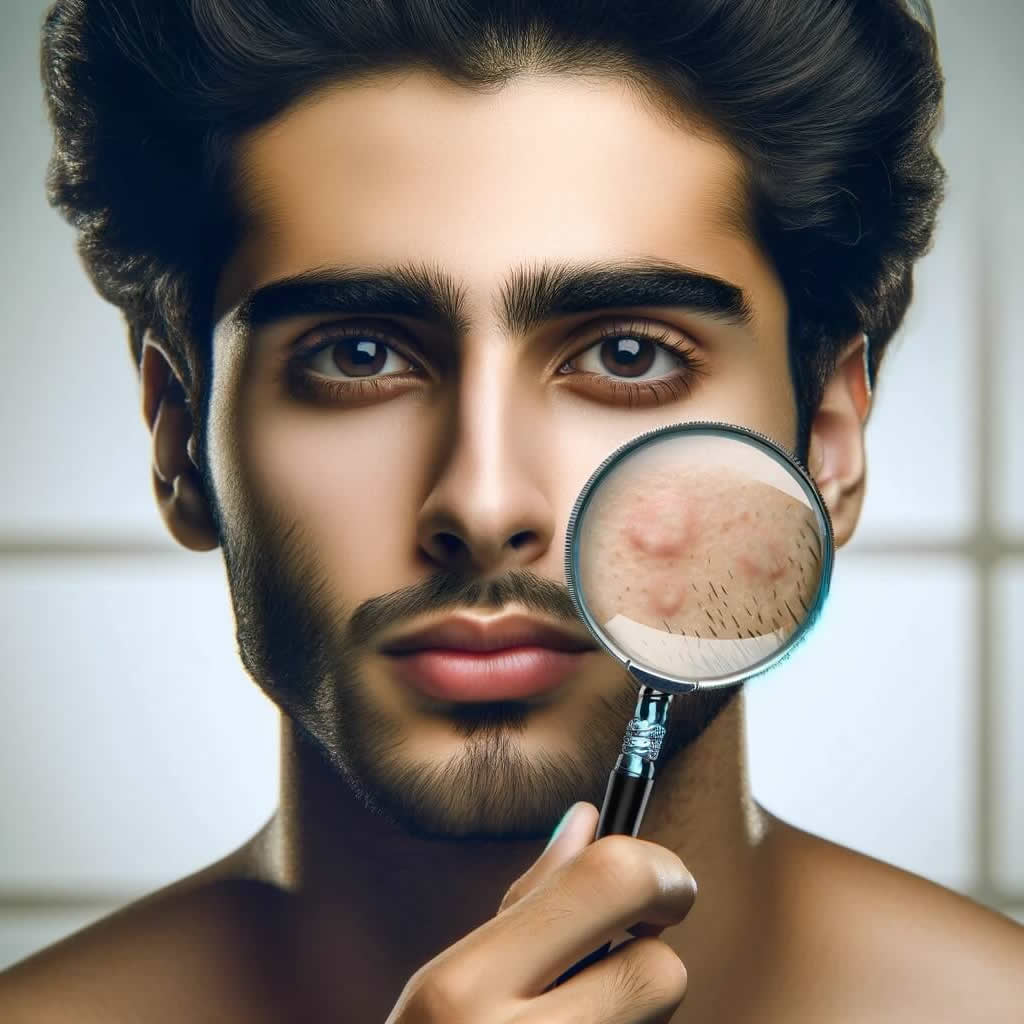
What does the process of acne treatment entail 2?
Lifestyle Modifications: Patients may be advised to make lifestyle changes that can help manage acne, such as adopting a skincare routine suitable for acne-prone skin, making dietary adjustments, and reducing stress.
Follow-Up and Adjustment: The dermatologist will schedule follow-up appointments to monitor the skin’s response to treatment. The treatment plan may be adjusted based on progress and any side effects experienced.
Maintenance: Once acne is under control, a maintenance plan may be advised to prevent recurrence, which might include a simplified skincare routine or periodic treatments.
Patient Education: Throughout the process, the dermatologist will educate the patient on the nature of acne, the importance of adhering to the treatment plan, and realistic expectations regarding the timeframe for improvement and the potential for recurrence.
Each acne treatment plan is as unique as the individual, and what works for one person may not work for another. It’s a collaborative and often iterative process requiring open communication between the patient and the healthcare provider.
What are the steps involved in treating acne?
The steps involved in treating acne are typically as follows:
-
Consultation and Diagnosis:
- Meeting with a healthcare professional to diagnose the type of acne (such as comedonal, inflammatory, or cystic).
- Discussing the patient’s medical history, lifestyle, and skincare habits.
-
Developing a Treatment Plan:
- Creating a tailored treatment strategy based on the acne’s severity and type.
- This plan may include a combination of topical treatments, oral medications, and lifestyle recommendations.
-
Implementing Topical Treatments:
- Applying medicated creams or gels that may contain ingredients like benzoyl peroxide, salicylic acid, or retinoids to help reduce oil production, inflammation, and skin cell turnover.
-
Prescribing Oral Medications:
- For more severe cases, oral antibiotics, hormonal treatments (such as birth control pills), or isotretinoin might be prescribed.
-
Professional Skin Treatments:
- Procedures such as chemical peels, laser therapy, or microdermabrasion can be used to treat more persistent acne and reduce scarring.
-
Lifestyle Adjustments:
- Recommending changes in diet, exercise, and skincare routines to manage acne more effectively.
- Stress management techniques may also be suggested.
-
Maintenance and Follow-up:
- Regular check-ups to monitor the skin’s response to treatment and make any necessary adjustments.
- Long-term maintenance therapy to prevent new breakouts.
-
Education:
- Providing information about acne management and the importance of adhering to the treatment regimen.
- Discussing the realistic expectations and timeframes for improvement.
-
Adherence and Monitoring:
- Ensuring the patient follows the treatment regimen consistently.
- Keeping track of any side effects or changes in the skin condition to report back to the healthcare provider.
-
Evaluation and Adjustment:
- Evaluating the effectiveness of the treatment over time.
- Adjusting the treatment plan as needed based on the patient’s progress.
Remember, the key to successful acne treatment is patience and consistency, as most treatments take time to show results. It’s also important for individuals to avoid picking or squeezing pimples, which can worsen acne and lead to scarring.
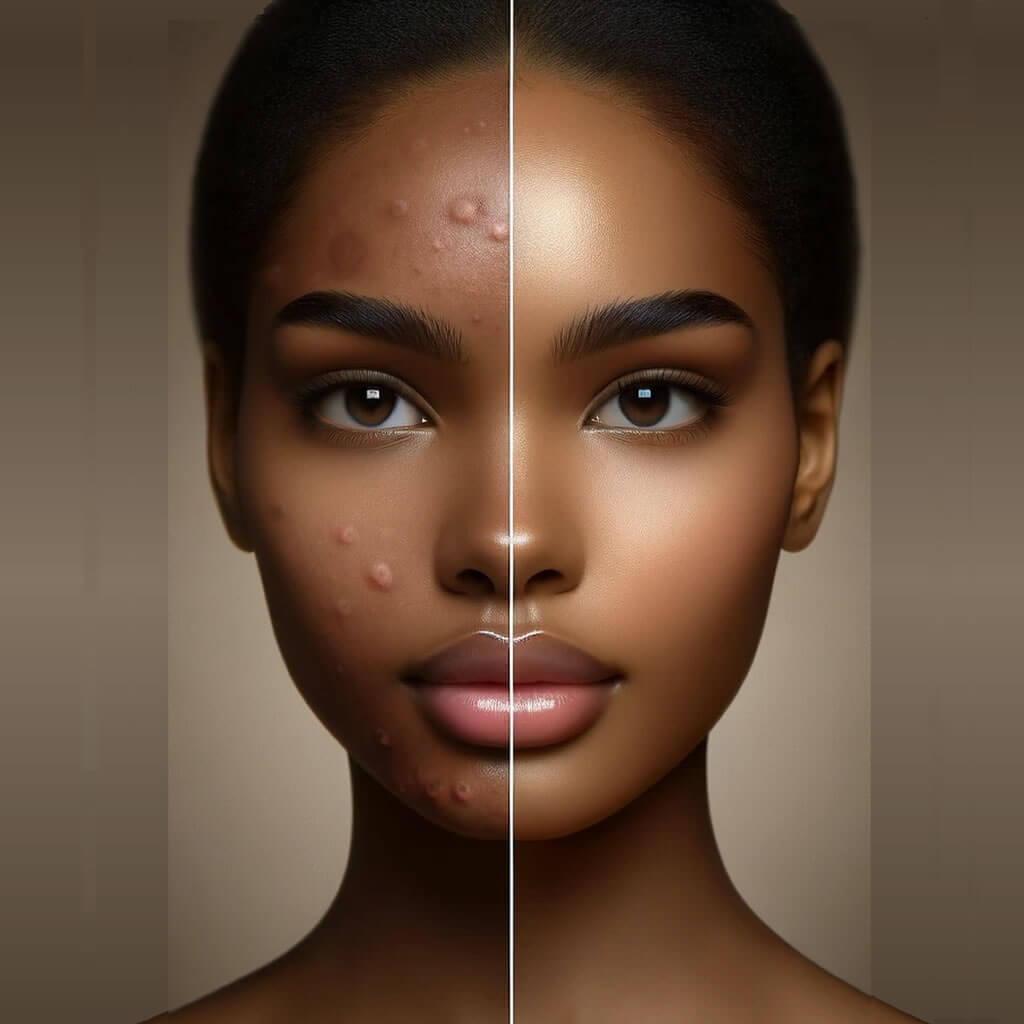
Acne Treatment is Effective For
Mild to Moderate Non-Inflammatory Acne:
Including whiteheads and blackheads, which are caused by clogged pores and can often be managed with topical treatments.
Inflammatory Acne:
Such as papules and pustules, which are red, swollen, and can be tender or painful. These often require a combination of topical and oral treatments.
Hormonal Acne:
Typically characterized by breakouts around the jawline and chin, which can be treated with hormonal therapy or other medications.
Cystic Acne:
The most severe form of acne presents as large, painful, and inflamed nodules beneath the skin’s surface, which may require more intensive treatment such as isotretinoin.
Acne Scarring:
Treatments can help to reduce the appearance of scars left by acne, using methods like laser therapy, fillers, or chemical peels.
Oily Skin:
Treatments can help regulate sebum production, thereby reducing the likelihood of new acne formation.
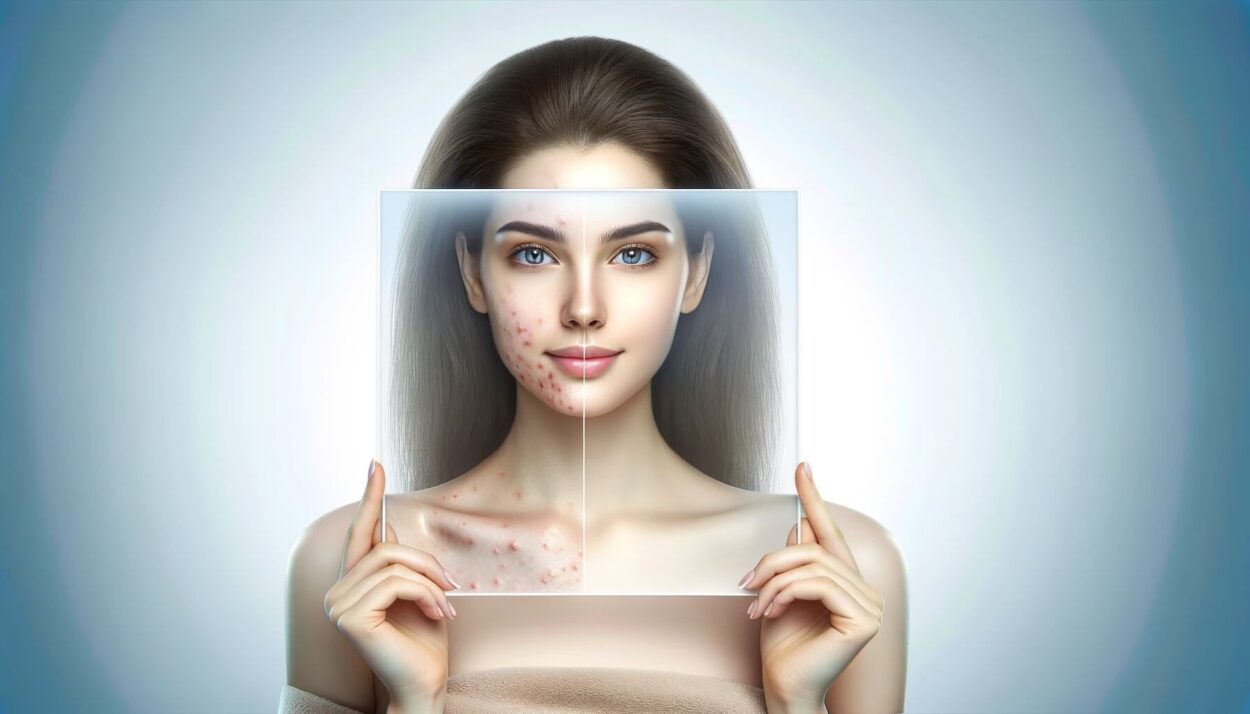
Acne treatment At a Glance
| Aspect | Details |
| Duration of Treatment | Sessions can vary, typically between 30 minutes to 1 hour, depending on the specific treatment. |
| Anesthesia Required | None required for most topical treatments. Procedures like chemical peels or laser therapy may use a topical numbing agent to reduce discomfort. |
| Contraindications | Not suitable for individuals with certain skin conditions or those allergic to ingredients in the treatment products. Always consult with a dermatologist beforehand. |
| Recovery Time | Varies by treatment type; minimal for topical treatments. Some procedures may require a few days of downtime. |
| Results | Reduction of acne blemishes, improved skin texture, and decreased oiliness. Potential for significant long-term clearance of acne. |
| Suitable For | Effective for treating non-inflammatory comedones, inflammatory lesions, and in some cases, hormonal and cystic acne. |
| Number of Treatments | Depends on acne severity; a series of treatments may be necessary, with periodic maintenance sessions. |
| Expected Onset of Results | Improvement can be seen as early as a few weeks but may take several months for more significant results. |
| Longevity of Results | Ongoing with continuous treatment and proper skincare regimen. May need maintenance treatments to manage new breakouts. |
| Aftercare | Specific post-treatment instructions will be provided, which may include the use of gentle skincare products and sun protection. |
| Side Effects | Generally mild and may include temporary redness, peeling, or dryness. More aggressive treatments may have additional risks which should be discussed with your dermatologist. |
| Suitability | Ideal for those with persistent acne, those who do not respond to over-the-counter products, or individuals looking to minimize the risk of scarring and address existing acne-related skin damage. |
This table is designed to offer a broad view of the treatment, and the specifics may vary based on individual patient needs and the particular protocols of Star Aesthetic Medical Centre.
Neostrata Products
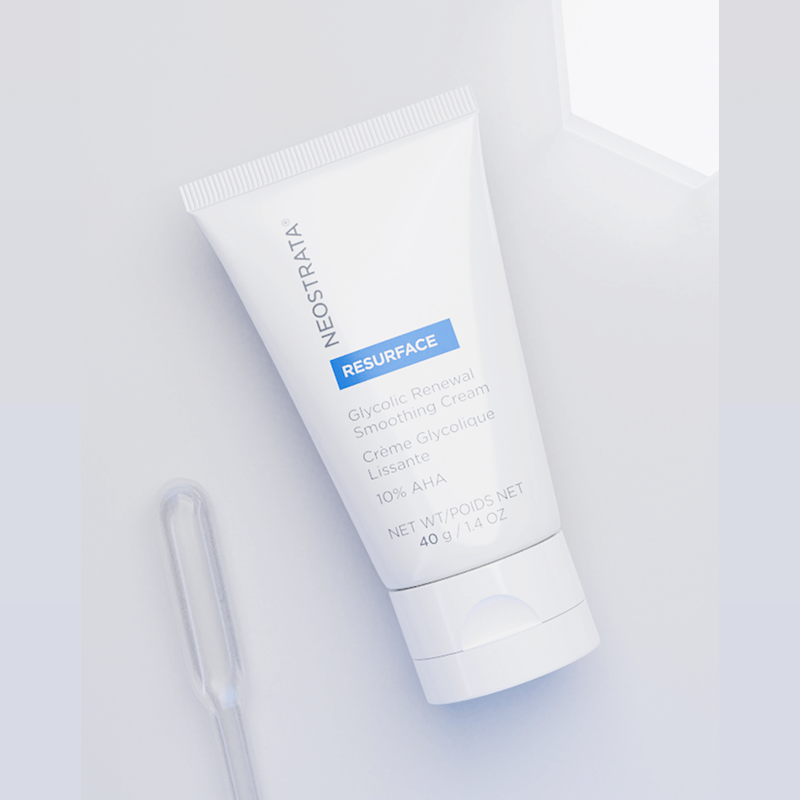
Neostrata Ultra Smoothing Cream 10 AHA: Neostrata Ultra Smoothing Cream 10 AHA – Anti-Ageing Cream with 10% Alpha Hydroxy Acids
From
R 695,00 Inc VAT
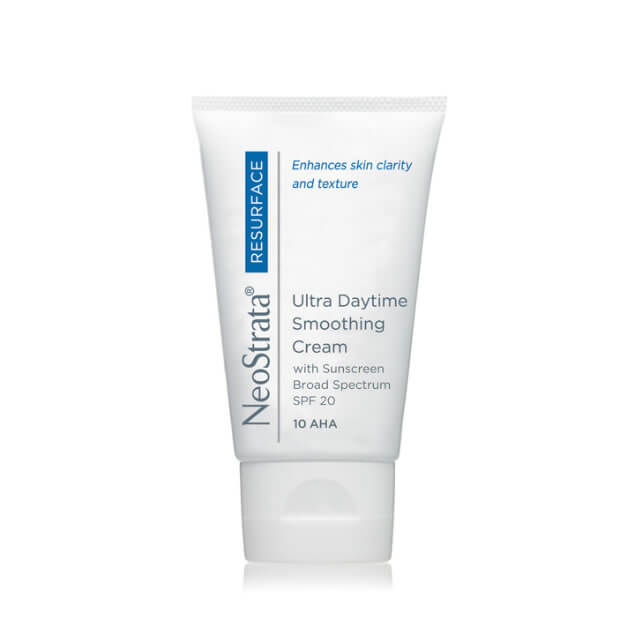
Neostrata Ultra Daytime Smoothing Cream SPF20: Neostrata Ultra Daytime Smoothing Cream SPF20 – Daily Moisturiser with 10% Alpha Hydroxy Acids and Sun Protection
From
R 695,00 Inc VAT
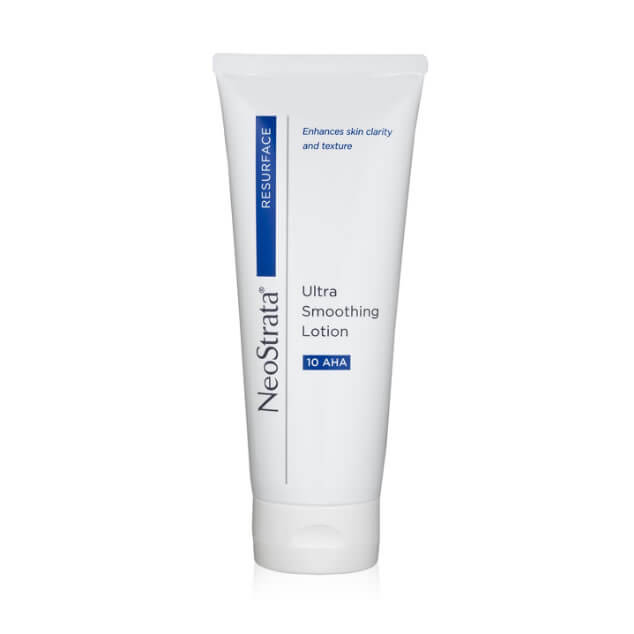
Neostrata Ultra Smoothing Lotion 10AHA: Neostrata Ultra Smoothing Lotion 10AHA – Lightweight Lotion with 10% Alpha Hydroxy Acids for Face and Body
From
R 695,00 Inc VAT
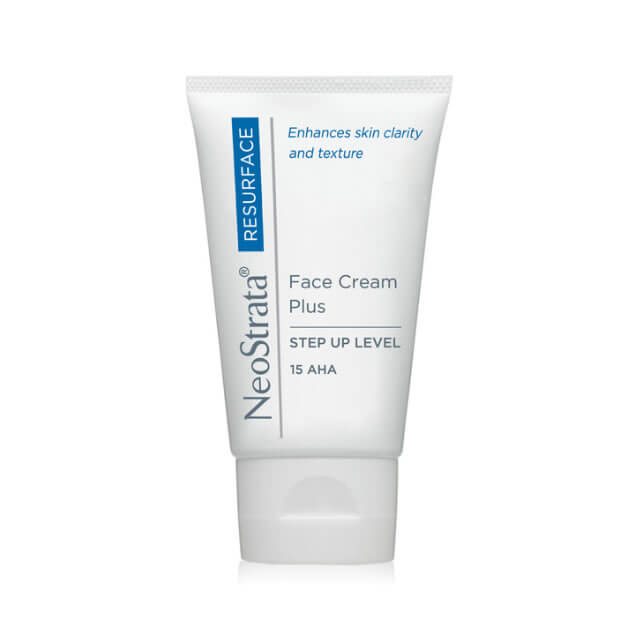
Neostrata Face Cream Plus 15 AHA: Neostrata Face Cream Plus 15 AHA – Intensive Cream with 15% Alpha Hydroxy Acids for Mature and Sun-Damaged Skin
From
R 695,00 Inc VAT

Mesoestetic Products
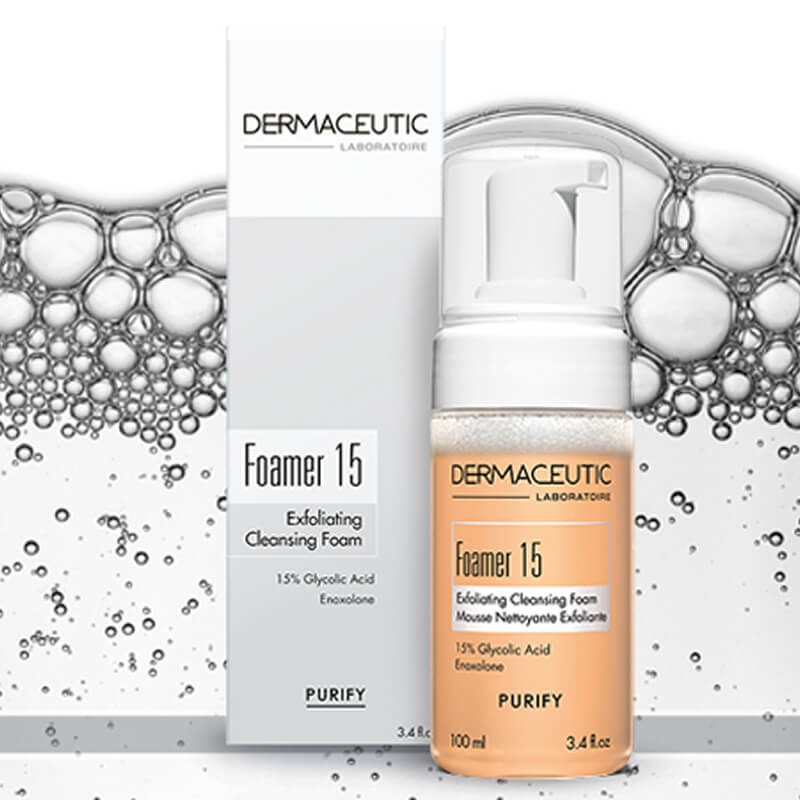
Foamer 15: Dermaceutic Foamer 15 – Exfoliating Foam with 15% Glycolic Acid
From
R 979,00 Inc VAT
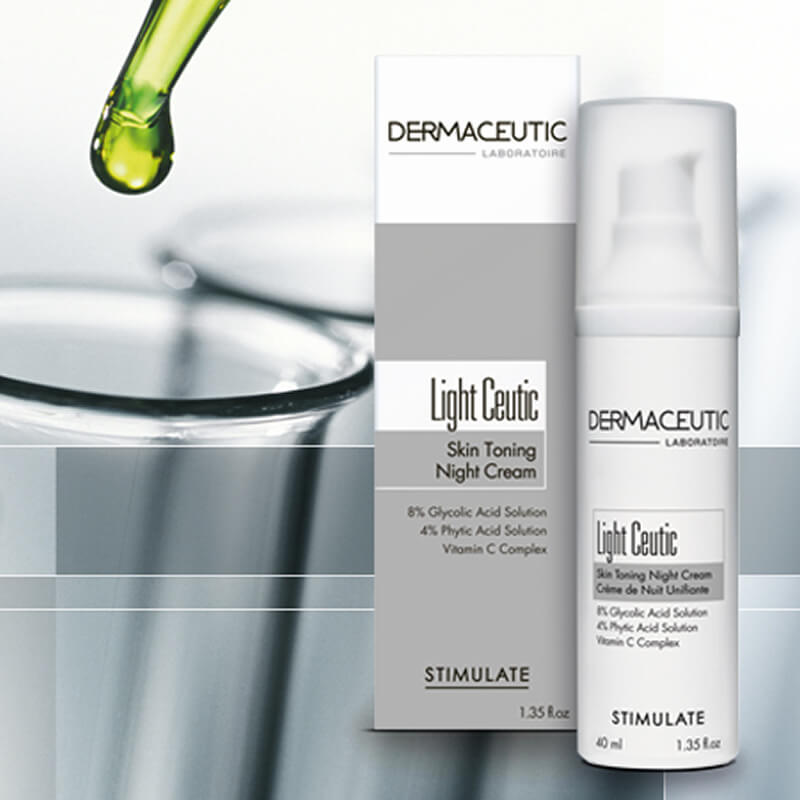
Light Ceutic: Dermaceutic Light Ceutic – Unifying Night Cream with Glycolic Acid, Phytic Acid, and Vitamin C
From
R 1 169,00 Inc VAT
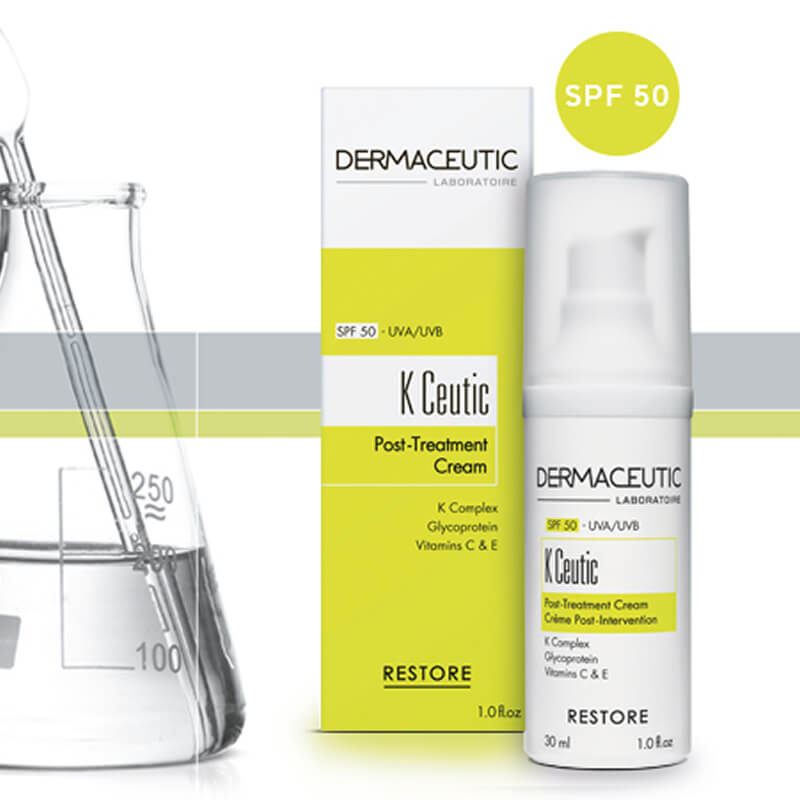
K Ceutic: Dermaceutic K Ceutic – Post-Treatment Cream with SPF 50, K Complex, and Vitamin E
From
R 1 089,00 Inc VAT
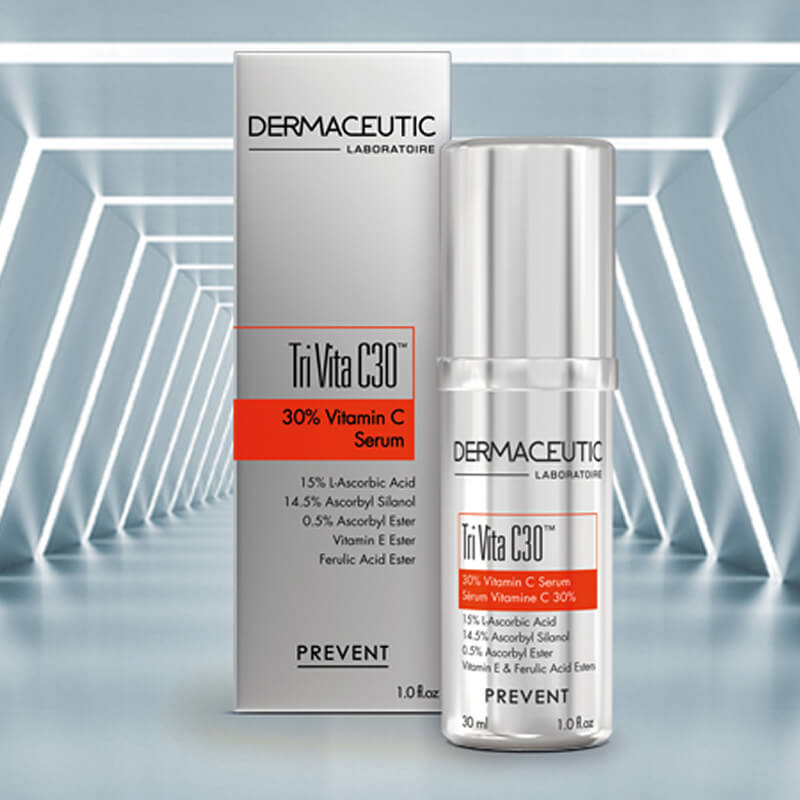
Tri Vita C30: Dermaceutic Tri Vita C30 – 30% Vitamin C Serum with Ferulic Acid and Vitamin E
From
R 2 369,00 Inc VAT
Acne Treatment Testimonials: Real Stories, Real Results
Discover the transformative power of our acne treatments through the experiences of those who’ve walked this journey. At Star Aesthetic Centre, we’re proud of the positive impact we’ve made on our patients’ lives.
This section features heartfelt testimonials from individuals who have entrusted us with their skincare journey. Their stories are a testament to our commitment to delivering effective, personalized acne solutions.
Read on to see how our treatments have helped them achieve clearer, healthier skin and restored confidence.
Frequently Asked Questions About Acne Treatment
Navigating the world of acne treatment can often be overwhelming, filled with a myriad of questions and uncertainties. Whether you’re taking the first steps in understanding acne or seeking deeper insights into advanced treatment options, our FAQ section is here to guide you. Compiled with the most common queries we receive, these questions and answers aim to demystify acne treatment and provide you with the knowledge you need. Explore our FAQs to gain clarity, learn more about your options, and feel more confident in your journey towards clearer skin.
1. What causes acne?
Acne occurs when hair follicles become clogged with oil and dead skin cells. It’s often exacerbated by hormones, diet, stress, and certain medications.
2. Are there different types of acne?
Yes, acne can be non-inflammatory (blackheads and whiteheads) or inflammatory (papules, pustules, nodules, and cysts).
3. Who gets acne?
While acne is most common in teenagers, it can affect people of all ages.
4. Can diet affect acne?
Certain foods may trigger acne in some people, though it varies. High glycemic index foods and dairy products are often cited as potential contributors.
5. Is acne contagious?
No, acne is not contagious and cannot be spread from person to person.
6. How is acne treated?
Treatment options include topical treatments, oral medications, lifestyle changes, and professional skin treatments like chemical peels or laser therapy.
7. Can over-the-counter products treat acne?
Mild acne can often be managed with OTC products containing ingredients like benzoyl peroxide or salicylic acid, but more severe acne usually requires professional treatment.
8. How long does it take for acne treatments to work?
This varies depending on the treatment, but it generally takes several weeks to see noticeable improvements.
9. Are there side effects to acne treatments?
Some treatments may cause side effects like dryness, redness, and irritation. Discuss potential side effects with your dermatologist.
10. Can acne scars be treated?
Yes, there are treatments available to reduce the appearance of acne scars, including laser therapy, microneedling, and chemical peels.
11. Will my acne ever go away?
Many people see their acne diminish as they get older, especially after their teenage years. However, some may continue to experience acne into adulthood.
12. Can stress cause acne?
Stress doesn’t directly cause acne, but it can exacerbate it by causing your body to produce more hormones that stimulate oil production.
13. Is it bad to pop pimples?
Yes, popping pimples can lead to scarring and infection. It’s best to let them heal naturally or seek treatment from a dermatologist.
14. Does sun exposure help acne?
While sunlight might temporarily dry out pimples, it can also cause skin damage and exacerbate acne in the long run. Always use sunscreen.
15. Should I see a dermatologist for my acne?
If your acne is severe, not responding to over-the-counter treatments, or causing emotional distress, it’s advisable to consult a dermatologist.

